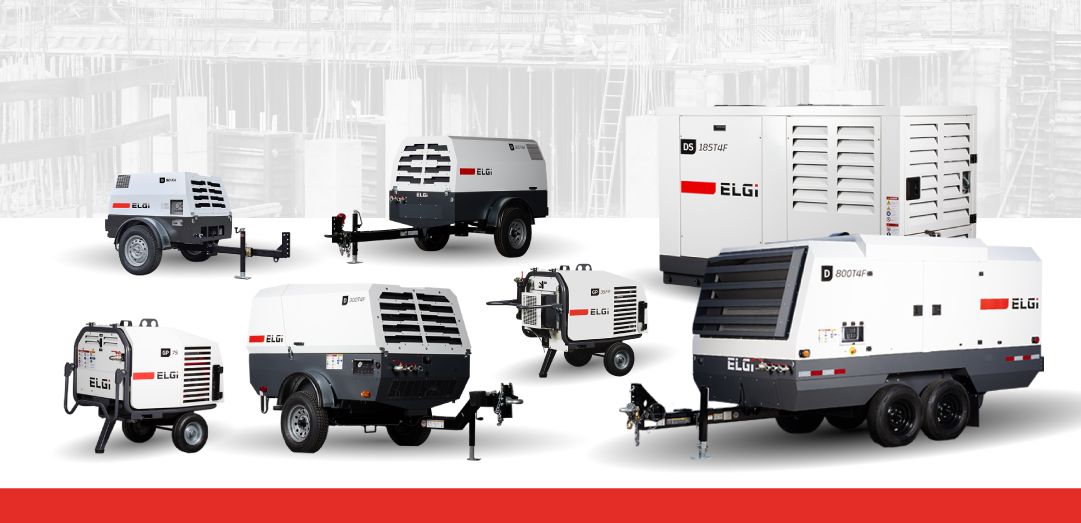Minimize Downtime During the Winter Season: ELGi’s Guide to Preparing Your Portable Compressor

As the seasons change and winter approaches, it's crucial to ensure that your portable air compressor is ready to perform as its best, even in cold conditions. Just like you prepare your home and vehicle for the colder months, your portable air compressor deserves some attention to keep it running smoothly.
Here are some essential tips to prepare your portable air compressor for winter, ensuring that downtime is minimized and it remains a reliable tool for your operations - whether you run into temperature drops or snowfall.
Check your air compressor’s manual. Review the manufacturer’s recommendations in the owner’s manual, each portable air compressor may have specific guidelines for winterization, including temperature limits and maintenance instructions.
Inspect air filters and be prepared for replacement, if necessary. In colder conditions, air filters can become clogged more quickly due to condensation and debris. Check the air filter regularly, and replace if it’s dirty or clogged to ensure optimal air intake.
Drain moisture regularly. Winter weather often leads to increased moisture in the air - excess moisture in your air compressor’s tank can lead to corrosion and reduced efficiency. Drain the tank after each use and consider installing a moisture trap or air dryer to prevent moisture-related issues during winter.
Use appropriate lubricants. In colder temperatures, the viscosity of lubricants can change, which will affect the performance of your air compressor. Ensure that you use the recommended lubricants suitable for winter use.
Insulate air lines and hoses. Exposure to extreme cold can cause air lines and hoses to become brittle, crack, or freeze. Insulate your air lines and hoses with appropriate materials to protect them from cold, which will help maintain flexibility and prevent damage.
Store your air compressor indoors when not in use. Whenever possible, store your portable air compressor indoors to protect it from extreme cold temperatures, which can affect the performance of the compressor and its components. If indoor storage isn’t an option, consider using a portable shelter or cover to shield it from the elements. When storing the air compressor, disconnect the power cable from the battery for safety purposes.
Check for air leaks. Air leaks can become more pronounced in cold weather, reducing efficiency and performance. Regularly inspect your air compressor for leaks and address them promptly to maintain optimal operation.
If you need assistance with performing a winter service, look no further than ELGi. We have a wide service network across North America readily available to ensure your portable air compressor doesn’t experience downtime throughout the winter season. To find your nearest provider, contact us:
The checklist below are general maintenance interval guidelines. We recommend following the check list below to ensure smooth operations all year long.
Download Check List
